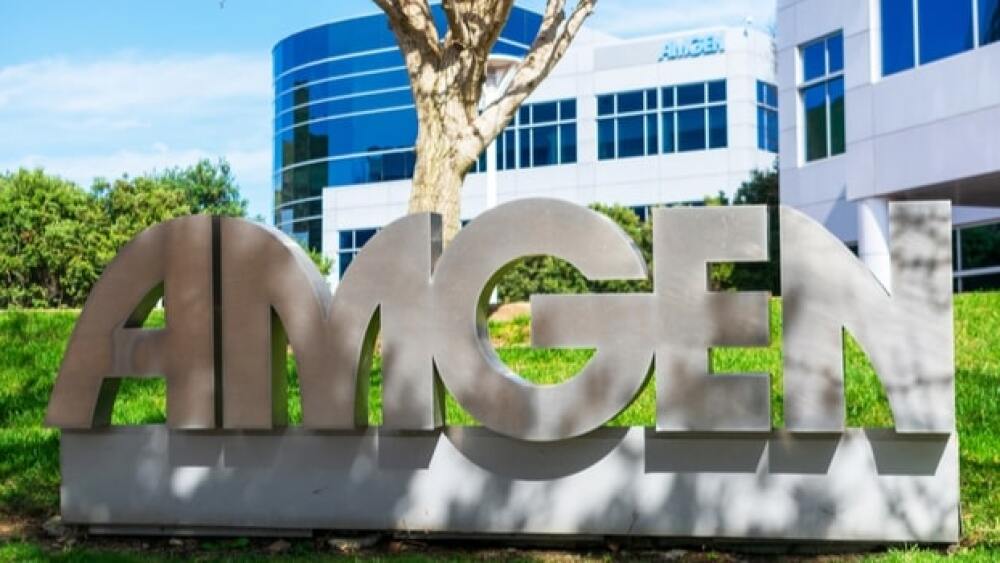Under the terms of the deal, Amgen is buying all outstanding shares of Rodeo with a $55 million upfront payment. In addition, there are potential milestone payments that could hit $666 million in cash.
Michael Vi/Shutterstock
Thousand Oaks, California-based Amgen is acquiring Seattle-based Rodeo Therapeutics. Rodeo develops small-molecule drugs that promote regeneration and repair of various tissues.
Under the terms of the deal, Amgen is buying all outstanding shares of Rodeo with a $55 million upfront payment. In addition, there are potential milestone payments that could hit $666 million in cash. The deal has been approved by the shareholders and board of directors of Rodeo.
“We are thrilled that Amgen recognizes the potential value and differentiated profile of our 15-PGDH inhibitor program,” said Thong Q. Le, president and chief executive officer of Rodeo. “With decades of experience in developing, manufacturing and commercializing innovative therapies for patients suffering from a broad range of immunologic diseases and conditions, Amgen is ideally positioned to rapidly advance our program into the clinic.”
Rodeo was founded in 2017 by Joseph Ready, Sanford Markowitz and Stanton Gerson and Accelerator Life Science Partners (ALSP). Since it was founded, the company was exclusively managed by ALSP.
Its initial focus was on inflammatory bowel disease and the promotion of blood cell reconstitution after bone marrow transplant. The company’s pipeline targets prostaglandin, a family of signaling molecules associated with tissue repair and regeneration. Their lead product blocks 15-prostaglandin dehydrogenase (15-PDGH), an enzyme that breaks down prostaglandin. In preclinical studies the drug appears to protect against colitis and idiopathic pulmonary fibrosis, a rare and fatal disease that involves scarring of the lungs. It also seems to promote liver degeneration.
“The enzyme 15-PGDH plays a key role in many disease-relevant processes such as stem cell self-renewal and epithelial barrier repair,” said Raymond Deshais, senior vice president of Global Research at Amgen. “Given the encouraging preclinical data to date, we are excited about the opportunity to develop a novel therapy with potential in a range of important inflammatory disease indications.”
Rodeo announced on August 31, 2020, that it has picked RTX-1688 as its lead development candidate, for inflammatory bowel disease. The drug had demonstrated significant monotherapy efficacy in an injury-induced inflammatory bowel disease model, as well as favorable in vitro and in vivo characteristics. They planned to investigate it alone and in combination with existing anti-inflammatory drugs.
Today’s deal follows a much bigger deal Amgen announced on March 4, buying Five Prime Therapeutics for $38 per share in cash for an equity value of about $1.9 billion. Five Prime is an oncology company, with its lead asset, bemarituzumab, a first-in-class, Phase III-ready anti-FGFR2b antibody. The drug had positive results in a Phase II trial in frontline advanced gastric or gastroesophageal junction (GEJ) cancer. Bemarituzumab targets FGFR2b, which is overexpressed in about 30% of non-HER2-positive gastric cancer, in addition to other solid tumors.
At the time, Robert A. Bradway, Amgen’s chairman and chief executive officer, said, “The acquisition of Five Prime offers a compelling opportunity for Amgen to strengthen our oncology portfolio with a promising late-stage, first-in-class global asset to treat gastric cancer. We look forward to welcoming the Five Prime team to Amgen and working with them to leverage our best-in-class monoclonal antibody manufacturing capabilities to supply additional clinical materials, as well as expanded production quantities, to realize the full potential of bemarituzumab for even more patients around the world as quickly as possible.”
Featured Jobs on BioSpace





